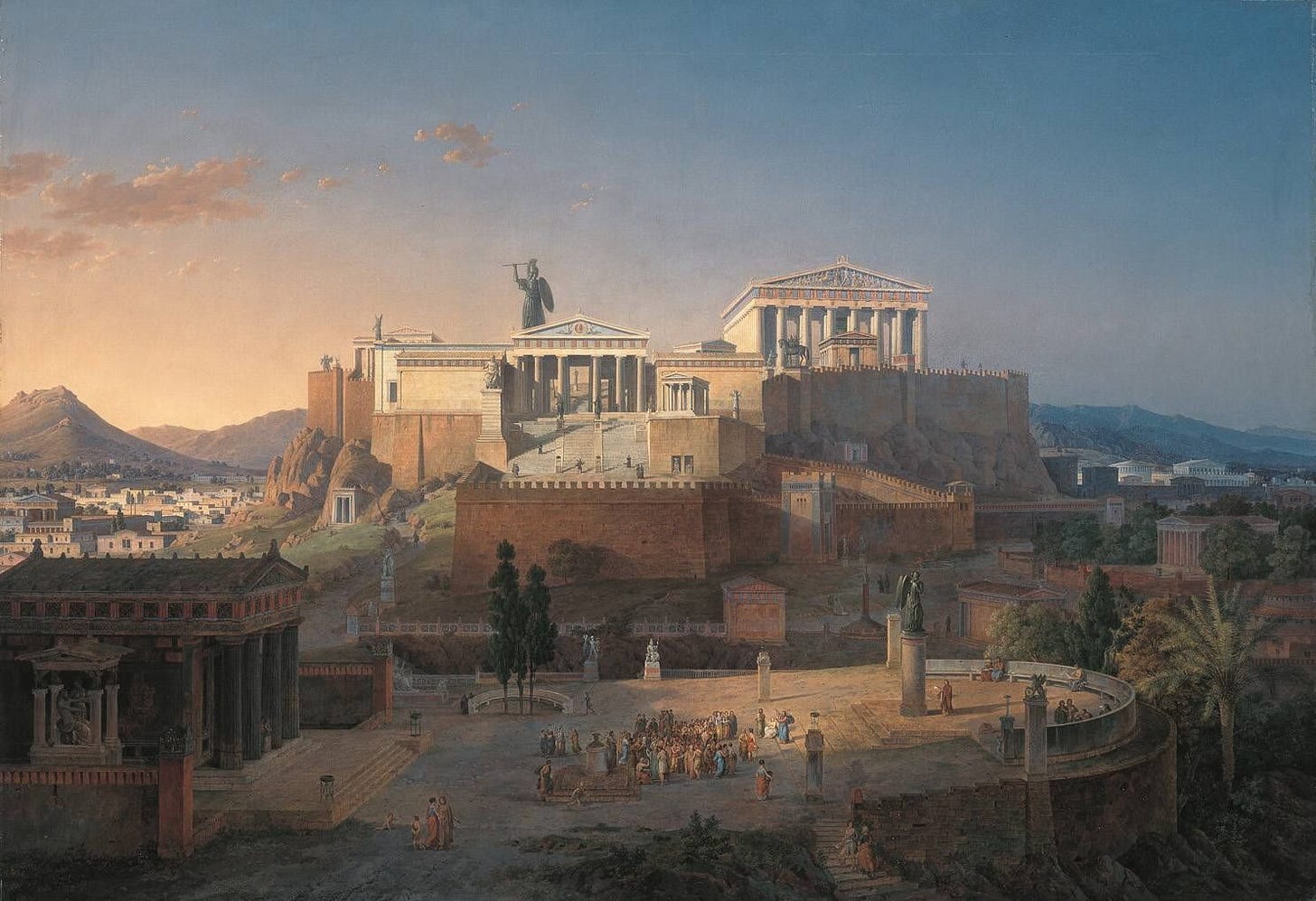Athens’ Decline, And How It Mirrors Our Own
Much of the beauty of Athens came from her civil liberties – there were no nobles, nor a designated class of aristocrats. The civil administration was extensive for its time, by virtue of the fact that anyone could, and was indeed encouraged to, participate.
Serving for a maximum of one…


